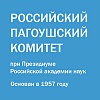Pugwash meeting in Tehran on the JCPOA
In
Log in if you are already registered
On 23-24 June 2019 a delegation from Pugwash travelled to Iran to participate in a specially-arranged two-day meeting organized together with the Institute for Political and International Studies (IPIS) in Tehran. The central focus of the discussions was the current status of the Joint Comprehensive Plan of Action (JCPOA), more than one year after the United States withdrew from implementing it, and the ensuing program of ever-tightening sanctions imposed by the US on Iran that has dramatically increased tension in the Middle East. Read the full report on
the Pugwash website.
Summary of key points
- With so-called ‘secondary sanctions’ applied by the US against other countries and businesses for trading with Iran, we are at a unique point in United Nations history where countries are being punished for upholding a UN Security Council Resolution (2231).
- The recent resumption of nuclear activities by Iran, in disagreement with the limits set by the JCPOA, is the result of an internal domestic compromise following the year of ‘strategic patience’ that brought no results in sanctions relief.
- The steps taken by Iran are viewed in reaction to the US withdrawal from the JCPOA and the lack of EU action since. It was stated several times that each step has been relatively small and is reversible.
- Iran is adamant that these steps are legal remedial measures, well within their right according to the Dispute Resolution Mechanism of the JCPOA outlined in paragraphs 36 and 37.
- The overwhelming emphasis of Iranian sentiment is that it is incumbent on the EU to make progress in providing sanctions relief according to the terms of the JCPOA. The main issue for Iran is to grant the capability of selling oil.
- If steps are not taken soon by the EU and US to address the economic obligations toward Iran under the JCPOA then the regional situation will continue to deteriorate dramatically.
- Further regional instability can provoke dangerous attitudes in other regional actors, particularly with respect to the Nuclear Non-Proliferation Treaty.
- On the current path, an Iranian exit from the NPT may become a possibility, even though Iranian authorities are far from keen to take this step which would serve only to promote a regional arms race.
- All countries must understand that the development of a civilian nuclear program without a serious system of international control will always create ambiguity with respect to possible military dimensions.




